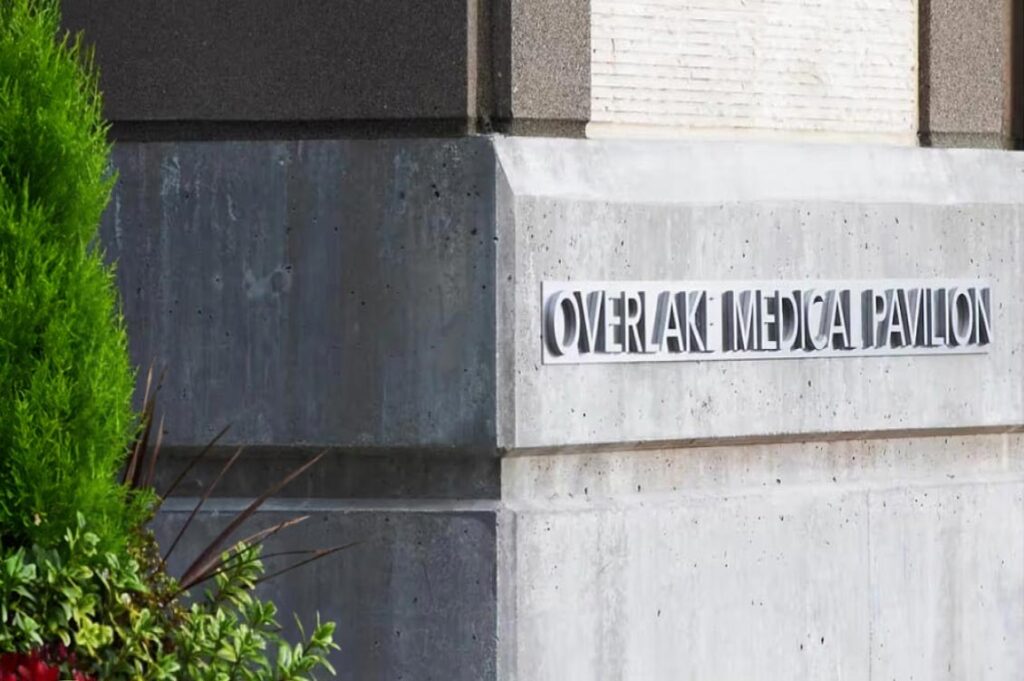
Dr. Eric A. Eisen
- Sinus & Functional Nasal Surgery
- General Adult & Pediatric Laryngology
- Otologic (Ear) Surgery
- Head & Neck Surgery

2022 | Ear, Nose, & Throat

Practicing surgeon at Proliance Eastside Surgery Center, named 2nd best ASC in Washington.
Education
MD, University of Oklahoma Health Sciences Center
Residency
Dartmouth Hitchcock Medical Center
Board Certification
American Board of Otolaryngology – Head and Neck Surgery
“Being a great doctor means being a great listener. My aim, as your physician and surgeon, is to form a genuine connection with you, the patient. By doing this, I can better understand your specific health needs and make sure you fully understand your own condition, too. Together, this creates a space for open dialogue and shared decision-making, all centered on what's best for you as an individual. That's the kind of personal care I believe in.”
Eric Eisen, MD, enjoys practicing the full range of both adult and pediatric general otolaryngology with a special focus in sinus and functional nasal surgery, surgery of the middle ear and mastoid, and soft tissue surgery of the head and neck. He believes that being a great doctor means being a great listener. His goal as a physician and as a surgeon is to connect with each and every patient on a personal level. This allows the patient to truly understand their condition and promotes informed, individualized decision-making.
Dr. Eisen enjoys hiking with his dog, playing golf and tennis, and woodworking. He also loves to travel and explore new places.
Dr. Eisen's Areas of Expertise
Sinus & Functional Nasal Surgery
- Minimally invasive functional endoscopic sinus surgery
- Functional nasal surgery
- Medical treatment of sinonasal conditions
General Adult & Pediatric Laryngology
- Tonsil and Adenoid Surgery
- Ear tubes
Otologic (Ear) Surgery
- Tympanoplasty
- Balloon Eustachian tube dilation
Head & Neck Surgery
- Thyroidectomy
- Salivary gland surgery
- Lymph node biopsy
- Soft tissue surgery of the head and neck.
Services
Click below for more details on the services offered by Dr. Kim.

For small lipomas, we offer in-office removal to save you time and get you back home quickly.

These procedures include general anesthesia, but do not require an overnight hospital stay.

An inpatient stay at the hospital may be anticipated for some surgical procedures.
Frequently Asked Post-Operative Care Questions
Click below for more details on the services offered by Dr. Eisen.
It’s safe to say that there isn’t a more common urgent concern after surgery than pain control. Optimal initial management of pain is key to a smooth recovery. With the opioid epidemic ongoing, we need more than ever to have a solid understanding of good pain control. Before you leave the surgery center or the hospital, you will have taken oral pain medications that will assure that you will make it home with adequate pain control. As you see below, “multi-modal” or multiple pathway pain control has been shown to ensure the safest and most effective management of postoperative pain. Keep in mind that some postoperative pain is to be expected and a 0-1 level of pain (referencing a 0-10 pain scale) may not be commonly achieved, however a 2-3 level of pain should be attainable with the appropriate use of oral pain medications.
-
Ibuprofen as the foundation of pain control.
Unless you have kidney disease, gastritis, are taking blood thinners or have been told otherwise by a physician not to take NSAIDS (non-steroidal anti-inflammatories), I recommend using Ibuprofen as the foundation of pain control. Most people will be familiar with use of Ibuprofen for fever, but it is also very effective in treating pain and is an anti-inflammatory that is particularly helpful for postoperative surgical pain where inflammation is a normal response to surgery. This means taking it soon after you get home from surgery and continuing 600 mg every 6-8 hours until your pain has resolved, which could be for up to 1-2 weeks after surgery. You likely received a prescription for Ibuprofen, but if you have over-the-counter Ibuprofen at home (Ibuprofen/Advil/Motrin are the same medication), you can use the equivalent dosage of 3 over-the-counter Ibuprofen (200 mg each) every 6-8 hours. The maximum dosage of Ibuprofen for someone with healthy kidneys is 2400 mg over a 24-hour period.
-
Narcotic Pain Medication.
You will have received your first dose of a narcotic pain medication before you left the surgery center or hospital. This has likely been prescribed to you in addition to acetaminophen, which allows effective pain relief with less narcotic the other pain medication. These two pain medications have different central nervous system effects. The third arm of multi-modal pain management is Ibuprofen, which further lessens the need for narcotics as noted above.
-
Do I really need to take the narcotic pain medication?
Most postop patients who have anything other than a minor office procedure, require initial pain control that includes a narcotic pain medication. Our central nervous system tends to set up a pain pathway that is more difficult to intervene, the longer the pain is left unaddressed. Optimally, the pain is initially managed with multi-modal therapy, then the narcotic is weened off first, continuing Ibuprofen until the pain is nearly resolved. I would recommend patients take the narcotic pain medications and move about at home during the initial several days postop rather than not taking the narcotics and laying in bed in pain, risking blood clots or pneumonia.
-
Will I get addicted to my postop narcotic pain medication?
This is a very timely concern as the opioid crisis continues to rage in our society and prescription medications have been found to be associated with this crisis. However there is no evidence to suggest that using narcotics for 5 days or less after a surgical procedure leads to narcotic addiction. Although it is unlikely that you will need it to this duration, even up to 2 weeks of gradually decreasing dose of narcotics is safe for most people during the postoperative period.
-
Constipation.
Please see the separate section on constipation, as narcotics be a cause. Unfortunately, although narcotics are very effective in pain control, our intestinal tract also has receptors for narcotics which cause them to slow down and causes constipation. This is another reason multimodal therapy is recommended and for weaning off of narcotics as soon as feasible.
-
-
Local therapies.
For the initial 48 hours after surgery, local application of ice packs to the site of surgery can decrease the inflammation and can also improve pain control.
-
What if my pain is still poorly controlled despite taking the maximum allowed doses of pain medications?
You should call my office with any pain that is not controlled with the prescribed pain medications. We are available 24-7 to take your call.
Constipation is a very common postoperative concern.It can be associated with mild-moderate nausea and even mild abdominal discomfort.To distinguish constipation from more serious postoperative conditions, if it is just constipation you should still be passing gas and not having associated severe nausea or vomiting.Usually there is little or no abdominal pain with constipation.There are two main reasons why constipation occurs or is worse after surgery.
- First, any surgery other than a minor procedure is perceived by your body as a form of trauma and our body releases inflammatory mediators called cytokines in response to surgery and trauma which wane over a period of few weeks. Cytokines make you feel tired, and achy and can contribute to constipation.
- Secondly, narcotics that are prescribed for pain control are known to slow down intestinal motility and can frequently result in constipation.
Management of constipation in order of medication use:
(*All of the medications mentioned below are available to you at any drug store without need for a prescription. Also, please make sure you stay well hydrated after surgery.)
Stool Softeners
Most likely you will have been prescribed a stool softener along with your narcotic pain medication. Stool softeners will soften your stool but not necessarily induce a bowel movement. Nevertheless, they are a first line medication that a lot of people will respond well to for prevention of constipation. Prescription strength stool softener is docusate 250 mg twice a day. Stool softeners are also sold at the drug store without a prescription under the generic name: “docusate” or the brand name: “Colace”. Over the counter they are sold as 100 mg capsules, and you can take 2-3, 100 mg capsules twice a day for constipation. (*If you are having diarrhea, you should stop using stool softeners.)Fiber
Fiber serves as a bulking agent and is strongly recommended for management of chronic constipation but seems less effective in the short term for postoperative constipation. If fiber supplements have been helpful for you in the past, you can take psyllium powder in its various forms (Metamucil, Citracel) as it is certainly not contra-indicated.Hyperosmotic Laxatives
Hyperosmotics work by pulling fluid into the intestinal tract. Clinically, the gentlest hyperosmotic laxative is Miralax which is well-tolerated, and recommended as the next line of treatment for constipation if stool softeners are not effective, but may not have immediate effect. A more effective hyperosmotic is Milk of Magnesia.Stimulant Laxatives
Examples of stimulant laxatives are “Ex-lax” or “Dulcolax” (oral or suppository form) and they work as pro-kinetics, stimulating intestinal motility that is also called peristalsis. Stimulant laxatives are safe to use on a very short term basis for severe constipation after surgery, but your body can develop dependence on them for normal intestinal peristalsis and they should not be used long term.Magnesium Citrate Bottle
Magnesium citrate is also a hyperosmotic laxative, but clinically we find that drinking a small bottle of magnesium citrate can have a strong cathartic effect, and so I recommend using it after trying a stimulant laxative.Enemas
Most people prefer to reserve the use of an enema as the final option as it is the most invasive but also the most effective management of constipation when all other measures are ineffective. The “Fleet Enema” brand is easiest to recognize at the drug store. It is a hyperosmolar fluid that is prepared and sold with a insertion tip for ease of delivery into the rectum via the anus. This fluid also functions as a stimulant and is usually effective in causing an urge to eliminate in a few minutes after administration.
Contact Dr. Eisen
Phone: (425) 507-0787 | Fax: (425) 688-1901
Medical Pavilion at the Overlake Hospital Campus
1231 116th Ave NE Suite #930, Bellevue, WA 98004.
